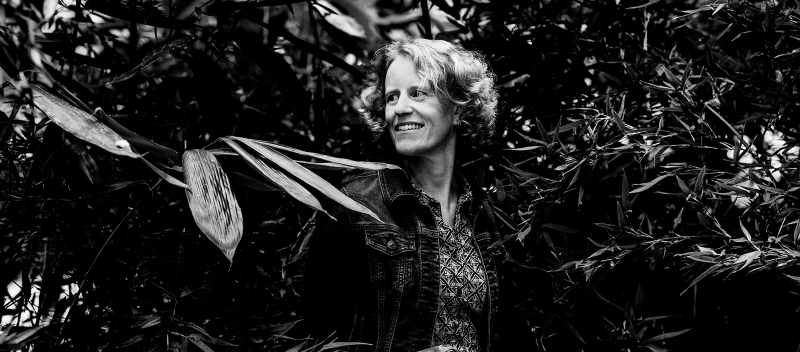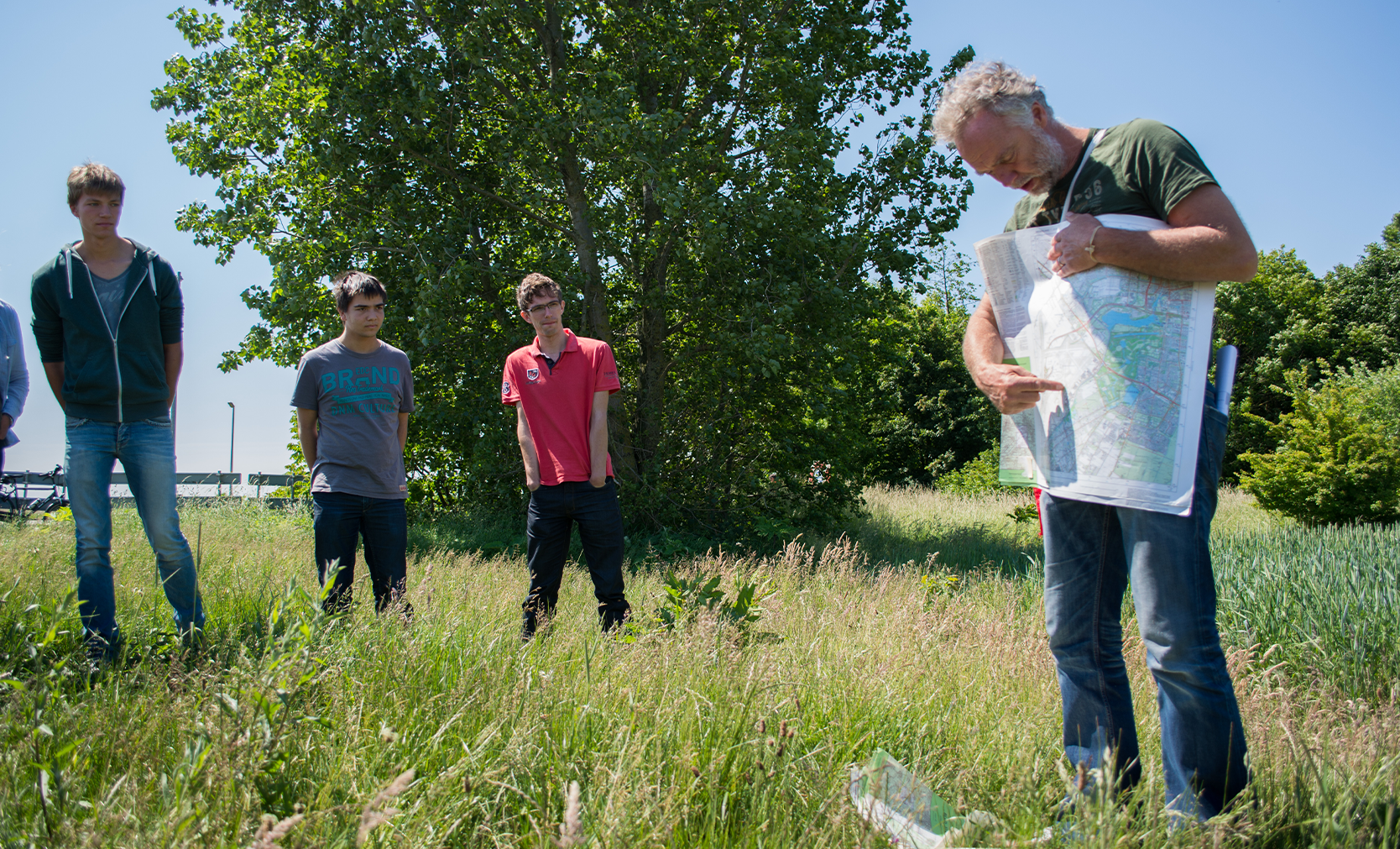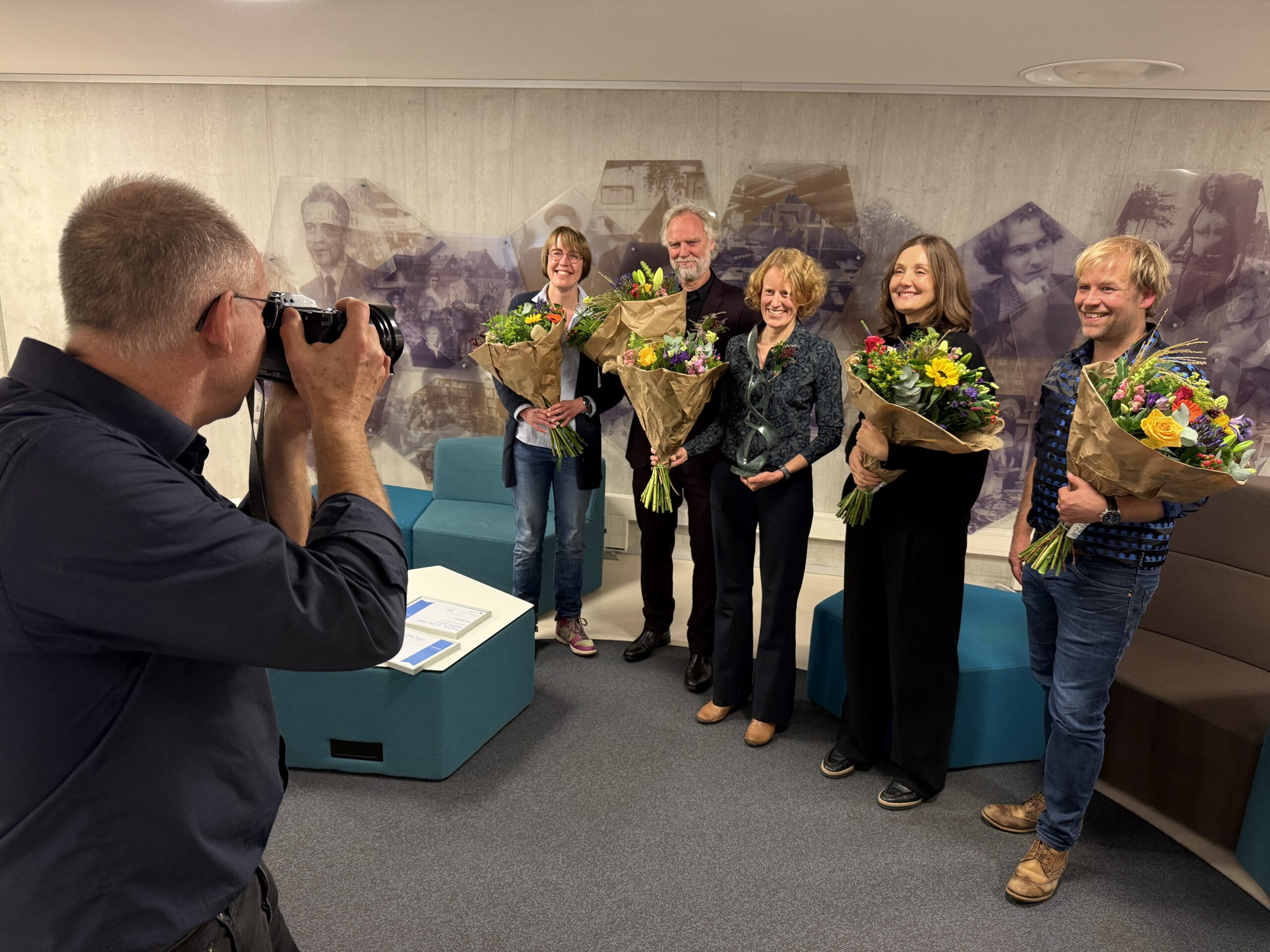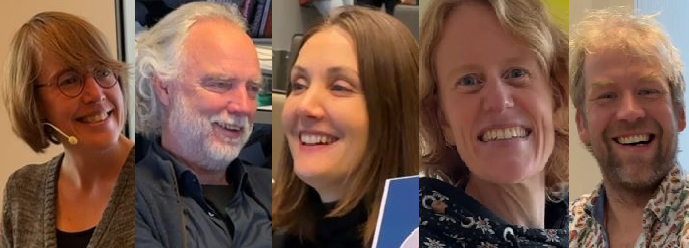A passion for plants and for teaching, always going above and beyond for her students — These were some of the reasons the jury gave for choosing Hannie van der Honing as Teacher of the Year. What is the story behind those words, who is Van der Honing and how does she see herself as a teacher? A characterization in ten key phrases.
WUR roots
‘I too studied in Wageningen. I started out in Forest & Nature Conservation, but switched to Biology after a year. I decided to try it for one year and see how it went. During that year, I became fascinated by plants. That’s mainly thanks to the teachers I had: Wim Braakhekke and André van Lammere, who I eventually took over from. In my first year as a WUR teacher, I did virtually everything together with André. Later I gave the lectures and taught the practical activities myself, with him observing. It was a fantastic way to learn the ropes as a lecturer. Even now he helps out if necessary with the big plant modules, even though he’s been retired for nearly ten years.’
Passion for plants
‘I’m a real fan of plants, mainly because of the tricks they use to survive in the place they happen to be — after all, it is difficult for plants to move somewhere else. I find carnivorous plants in particular fascinating. They mainly grow in nutrient-poor soil and therefore have to get their nutrients from other sources.’
I am a real plant enthusiast
‘Plants such as the Venus flytrap get nutrients from the insects they catch. Images were recently recorded of the pitcher plant Nepenthes in Borneo showing how tree shrews use the pitcher as a kind of toilet: while they lick the fluid produced by the plant, they poo into the pitchers. That’s how the plant makes sure it gets a supply of nutrients. That is so smart!’
Personal contact
‘As a student, I really liked the personal contact you get in Wageningen. Our teaching team tries to maintain that personal touch, even if the student numbers are much higher now. For example, we have over 550 students for Cell Biology. When there are so many students, I don’t always remember everyone’s name, but I do still try. It is easier with the students in the practicals and tutorials. We have much smaller groups for that, about a dozen people. I know all those students by name and recognize them if I meet them again later. (Laughing) I certainly remember the students who ask good questions, and the ones who are often late.’
Love of teaching
‘I discovered my love of teaching in the third or fourth year of my degree. We had a course then called “verbal presentation skills” and I liked that so much that I followed it up with the equivalent of today’s Education minor. What I like most about teaching is that moment when you see the penny drop – when you’re doing a practical activity or tutorial and you almost literally see someone suddenly grasping something they didn’t understand before. It feels like you are being incredibly useful as a teacher when you can help with that process. Research felt useful too — I did my PhD in the lab where I now work as a teacher (the Laboratory of Cell & Developmental Biology, ed.) — but I found it lonely at times.’
Back to the nest
‘When I got my PhD in 2012, I had already asked whether I could stay on at WUR as a teacher, knowing that André would be retiring in a couple of years. But that wasn’t possible because at that time everyone who taught at WUR had to do research too — and I didn’t want that. So I did teacher training and taught at secondary schools for a while. Then HAN University of Applied Sciences had a vacancy for what was basically my dream job: Molecular Plant Biology teacher in the degree programme for Biology and Medical Laboratory Research.’
‘I was happy at HAN and would probably still be working there if WUR hadn’t approached me in 2014: they needed someone to replace André, and would I be interested in applying? Everything fell into place. In part, it was because my husband and I really missed Wageningen after moving away. I hadn’t realized this before, but I feel completely at home here.’
Infectious enthusiasm
‘We have a very enthusiastic teaching team. If I’m doing a practical activity with my colleagues Otto, Tijs and Peter, it feels almost like a party. Students tell us this too: “your enthusiasm is infectious” or “I never knew plants could be so much fun”.’
If I am doing a practical activity with my colleagues, it feels almost like a party
‘I also get that feedback in the Botanical Gardens in Utrecht, where I give guided tours as a volunteer. If people find plants boring, it’s mainly because they don’t know much about all those amazing plant mechanisms. Once you tell people about that, they see plants in a different light.’
Differing interests
‘Not all students find plants or cellular processes as interesting as I do, but they still need to pass the course. So I do my best to motivate them by linking things to their interests or their field of work. In the Biology of Plants course, for example, I do that by offering different excursions and practical activities to students of Forest & Nature Conservation and of Agrotechnology.’
‘The pollination of orchids can seem quite irrelevant to Agrotechnology students, for instance, so with them I focus more on crops and edible plants. It’s more work developing two variants and then two versions of the exam, but I think it’s sufficiently important to justify the extra time and effort. I like seeing the students get enthusiastic because they realize how they can apply the course material in their future field of work.’
Worrier
‘I made some friends for life as a student at university — in particular, through Tartlétos, the student athletics club, where I was on the board. Some of those friends are back living locally and we always compete together in the Veluweloop relay race. My Tartlétos days were important for my personal development but also simply for relaxation. I still enjoy doing things outside work and study. I am a worrier by nature; I can easily spend a couple of hours awake at night worrying about a lecture that didn’t go well. I find it helps if I’m busy with fun things such as my running group, the guided tours in the Botanical Gardens or skating, which I do every Wednesday in winter.’
Educational Sciences
‘I am back to being a student myself now as I’m studying for a Master’s in Educational Sciences at the Open University of the Netherlands. I want to develop the courses I teach further and try out new things. I had also been wanting for a while to do research into the effectiveness of certain teaching methods. Once I’ve got my Master’s, I would love to be able to combine teaching plant science and doing research. I am up for a new challenge.’
Pressure on education
‘I recently heard that teachers in some groups feel they aren’t valued as much as the researchers. I’ve never felt that here for one moment. Our chairholder Viola Willemsen has always encouraged me. Here, teaching jobs are considered to be just as worthwhile as research jobs, and colleagues treat each other as equals.’
I hope this doesn’t threaten the excursions
‘However, I am a little concerned about what the planned cutbacks will mean for education. I hope this doesn’t threaten the excursions. It would be crazy if our students barely spent any time outdoors. In my opinion, we shouldn’t cut back on lab work either. Theoretical knowledge isn’t enough in this field; you need to learn practical skills as well. I am actually rather worried about this.’

 Photo Duncan de Fey
Photo Duncan de Fey 

